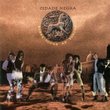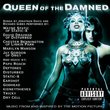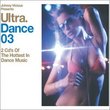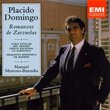| All Artists: Emily van Evera, Ben Parry, Henry Purcell, Andrew Parrott, Taverner Consort and Players, Hanne Mari Orbaek, Andrew Manze, Caroline Balding, Richard Gwilt Title: Dido & Aeneas Members Wishing: 0 Total Copies: 0 Label: Sony Release Date: 4/20/1999 Genre: Classical Styles: Opera & Classical Vocal, Chamber Music, Historical Periods, Baroque (c.1600-1750) Number of Discs: 1 SwapaCD Credits: 1 UPC: 074646299326 |
Search - Emily van Evera, Ben Parry, Henry Purcell :: Dido & Aeneas
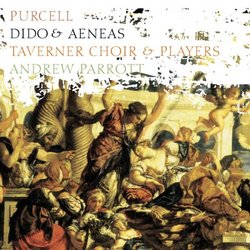 | Emily van Evera, Ben Parry, Henry Purcell Dido & Aeneas Genre: Classical
Dido and Aeneas has gotten more attention on record than any other 17th-century opera, yet the ever-thoughtful Andrew Parrott makes it sound fresh. Parrott's first recording (1981) took its cues from what was then thought... more » |
Larger Image |
CD DetailsSynopsis
Amazon.com Dido and Aeneas has gotten more attention on record than any other 17th-century opera, yet the ever-thoughtful Andrew Parrott makes it sound fresh. Parrott's first recording (1981) took its cues from what was then thought to be the opera's 1689 premiere at Josiah Priest's School for Young Gentlewomen in London. (David Thomas as Aeneas was the only male in the cast.) Subsequent research indicates that Dido was probably composed for private performance at the court of King James II; it's that kind of intimate affair that Parrott aims to recreate here. His orchestra and cast are more concerned with musical and dramatic nuance than with projection and volume; its small scale notwithstanding, this is a vibrant account of the score. The singing seems to owe more to the music hall than the operatic stage: actor Haden Andrews (the Sorceress) and folksinger Douglas Wootton (the Sailor) give vivid performances in which every word is clear. So does former Swingle Singer Ben Parry, whose Aeneas, more the smooth lover than the rough warrior, is absolutely gorgeous. Janet Lax sings Belinda with spirit and skill, but she sounds extremely youthful. The orchestra--essentially a chamber ensemble headed by violinist extraordinaire Andrew Manze--is at once subtle and exciting. Finally, there is Emily van Evera as Dido, a role that has attracted generations of divas from Kirsten Flagstad to Jessye Norman to Emma Kirkby. On first hearing, van Evera makes some pretty sounds but seems uninvolved with the drama (probably because her diction isn't terribly clear). Don't give up on her, though: repeated listenings will reveal a skillfully embellished, committed, and dignified portrayal of the seduced-and-abandoned young Queen. --Matthew Westphal Similarly Requested CDs
|
CD ReviewsIntimate & subtle Tony Evans | 01/08/2000 (5 out of 5 stars) "This is no "Aida". Although less than an hour long, Purcell's only opera is a Boroque masterpiece. The music is inventive, moody & poignant. It is not an opera designed for a grand opera house, but for a more intimate audience. Parrot succeeds admirably in achieving this effect. Some of the recordings manage to sound so fresh and different; this seems to have been achieved by abandoning any pretense of a grand operatic work, and adopting a more subtle realism. "Dido's Lament" for example is far more low key and less "dramatic" than other recordings I've heard, yet this softer, more subtle interpretation brings Dido's emotion much closer to us. The reason this CD is 62 minutes long is because of 2 extra pieces of Purcell's music thrown in - The Hornpipe from 'The Married Beau' and Pavan in G Minor. Which brings me to the absolute best thing about this CD - the intimacy and beauty of the music takes the breath away. There's no huge orchestra so you can hear every note and nuance. The Taverner Players excell themselves. Purcell is one of my favourite composers. This is his best work. And this recording is just gorgeous." Of special note... M. C. Colver | henderson, nv United States | 03/28/2006 (5 out of 5 stars) "This is a great CD set. I love Andrew Parrott's understanding and appreciation of this musical highlight. Emily Van Evera's appearance here is exceptional and I am constantly in awe of the tone quality in her voice. The only, only drawback to this recording is that Parrott occasionally uses a guitar as part of the continuo in place of a contrabass. This touch seems more historically based, but my modern ears prefer the basso continuo. Other than that, this recording is a gem!" I Hate to Say it, But... Aronne | 11/13/2009 (3 out of 5 stars) "This, my first Dido and Aeneas, pales in comparison to almost any major account of Purcell's delightful opera. The only thing that I found interesting when I first heard it was the chorus of "Destruction's our delight," which (now that I return to it) sounds slightly tame.
Andrew Parrott may be a famous interpreter of Baroque works, but his direction here isn't particularly inspiring. The tempi are often slow; sometimes the rhythms seems dead when the tempo is fine. "Fear no danger to ensue" falls somewhat flat. Though the scale of the performance suggests that, as other reviewers noted, it is meant to be an intimate experience, this recording flirts with being downright bland. Most of the cast sing very well, but rarely with distinction. Belinda's solo is alright. Dido, here soprano Emily Van Evera, lacks a lot of the power she normally possesses (it also makes it hard to distinguish her from Belinda and the Second Woman). Van Evera's lower register is weaker than I might have liked -- though all of her G's are splendid. She sounds more of a girl and less of a queen. Ben Parry as Aeneas is listed as a baritone, but his timbre is so light I initially thought he was a tenor. Either way, his performance is a bit workaday and like Dido, underpowered. But things to warm up with the entry of the Sorceress. Originally, the Sorceress was played by a bass; today, she is generally portrayed by a mezzo-soprano or contralto. So why does Parrott cast a tenor in this role? I don't really know. What's ironic is that tenor Haden Andrews' performance as the Sorceress is one of the better ones on this disk. He acts without overacting, and sings very well, even if he sounds like he's holding something back on a few of his high notes. The two witches are fine. The sailor sings with an unusually obnoxious accent. The extra piece at the end sort of dovetails with the conclusion of Dido and Aeneas, which is in the same key and mood. It is an excellent five minute bonus. Overall, this recording is passable, but not particularly distinguished. There are many other recordings of Dido & Aeneas that deserve your attention before this one -- such as Janet Baker's classic recording, Emmanuelle Haim's energetic reading with Felicity Palmer as the best Sorceress ever, and William Christie's bright version with small but able forces. I can't stop Dido collectors from getting this one, but if you're looking for a single version of Purcell's masterpiece, another recording is probably more likely to satisfy you. (If you simply must have this recording, it is available used for much less as its BBC incarnation -- exactly the same except without the Pavane at the end: Purcell - Dido & Aeneas.)" |

 Track Listings (44) - Disc #1
Track Listings (44) - Disc #1


